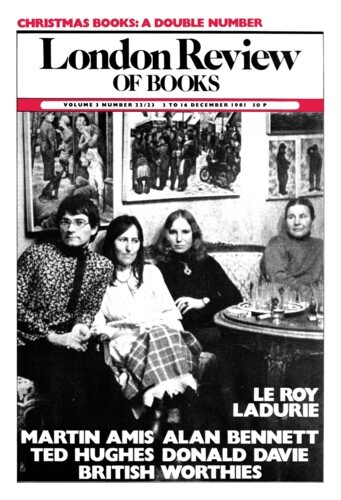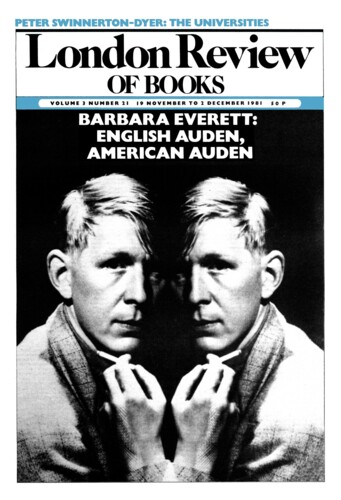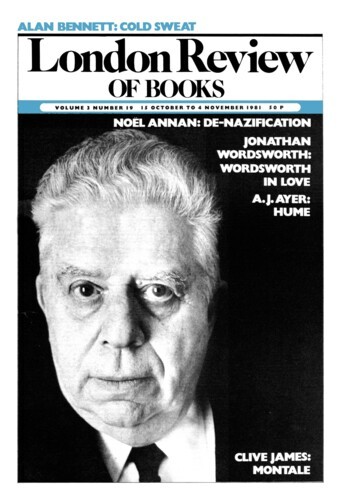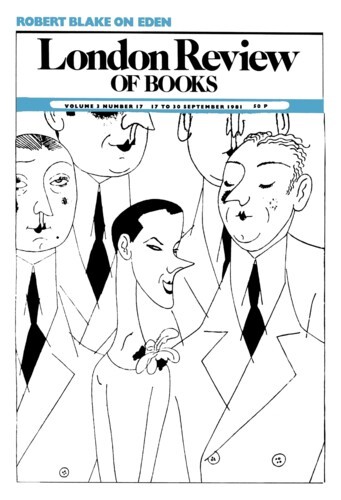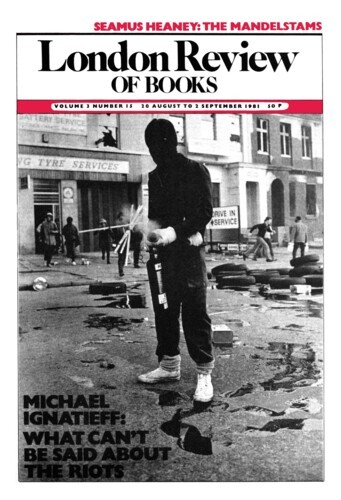Alan Hollinghurst writes about the poems and novels of the author of ‘The White Hotel’
Alan Hollinghurst, 3 December 1981
Poets often mature earlier than novelists; behind the romantic image of young poetic genius lies a clearly identifiable pattern whereby all but the greatest poets write their best work before the age of forty; the novelistic genius, on the other hand, tends to ripen with experience – to accumulate slowly. D.M. Thomas was told at the age of 25 by his ex-tutor John Bayley that he would be a late developer. The truth of Bayley’s remark has been demonstrated by the switch Thomas has made, in his forties, from poetry to prose, and though last month saw the publication of Dreaming in Bronze, a new collection of poems, it is now as a novelist that he will continue to be known most widely. His third and most recent novel, The White Hotel, has been especially successful in America, with the film rights lately sold for half a million dollars.
